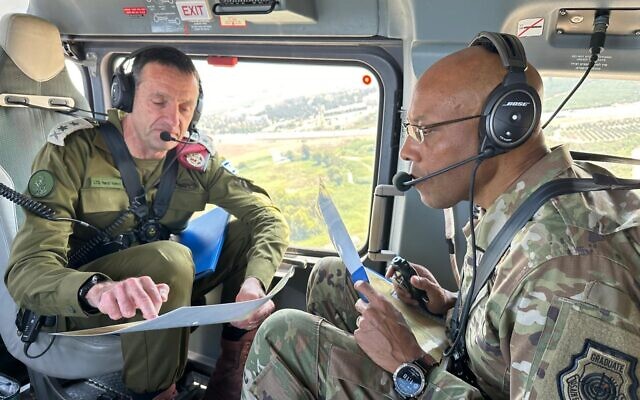C.Q. Brown stated that the Lebanese militant group retains its capabilities despite IDF strikes and cautioned that Iran remains a significant threat. However, he noted that the U.S. and its allies are now ‘better positioned’ to counter this danger.
Air Force General Charles Q. Brown, Jr., Chairman of the U.S. Joint Chiefs of Staff, stated that the immediate risk of a broader Middle Eastern conflict has somewhat diminished following the recent exchange of fire between Israel and Hezbollah. Despite this, he emphasized that Iran remains a significant threat, particularly as it considers potential actions against Israel.
General Brown, speaking to Reuters after a three-day trip to the Middle East, noted that he arrived in Israel shortly after Hezbollah launched a large-scale attack involving rockets and drones. In response, the Israeli Defense Forces (IDF) targeted Hezbollah rocket launchers in Lebanon to prevent further escalation. While this clash was one of the largest in over ten months, it ended with limited damage in Israel and no immediate follow-up attacks from either side.
Brown highlighted that Hezbollah’s recent attack was part of a broader pattern of threats against Israel, including potential retaliation from Iran for the killing of a Hamas leader in Tehran last month. The general indicated that the risk of a regional war has decreased somewhat but remains contingent on Iran’s response. “How Iran responds will dictate how Israel responds, which will dictate whether there will be a broader conflict or not,” Brown explained.
He also warned of additional risks posed by Iran’s allies in Iraq, Syria, and Jordan, as well as the Houthis in Yemen, who have targeted U.S. interests and Red Sea shipping. “The Houthis in particular are a wild card,” he noted.
In response to these threats, Brown assured that the U.S. military is now better positioned to support Israel and its own forces in the region compared to April 13, when Iran launched a significant attack on Israel. The U.S. has maintained two aircraft carrier strike groups in the Middle East and increased its deployment of F-22 fighter jets to enhance defense capabilities.
During his visit, Brown was briefed on security threats along Israel’s borders and met with Israeli Defense Minister Yoav Gallant and IDF Chief of Staff Herzi Halevi. He cautioned that while Hezbollah’s capabilities remain intact, the broader regional conflict continues to evolve, with significant consequences from ongoing hostilities in Gaza and surrounding areas.










